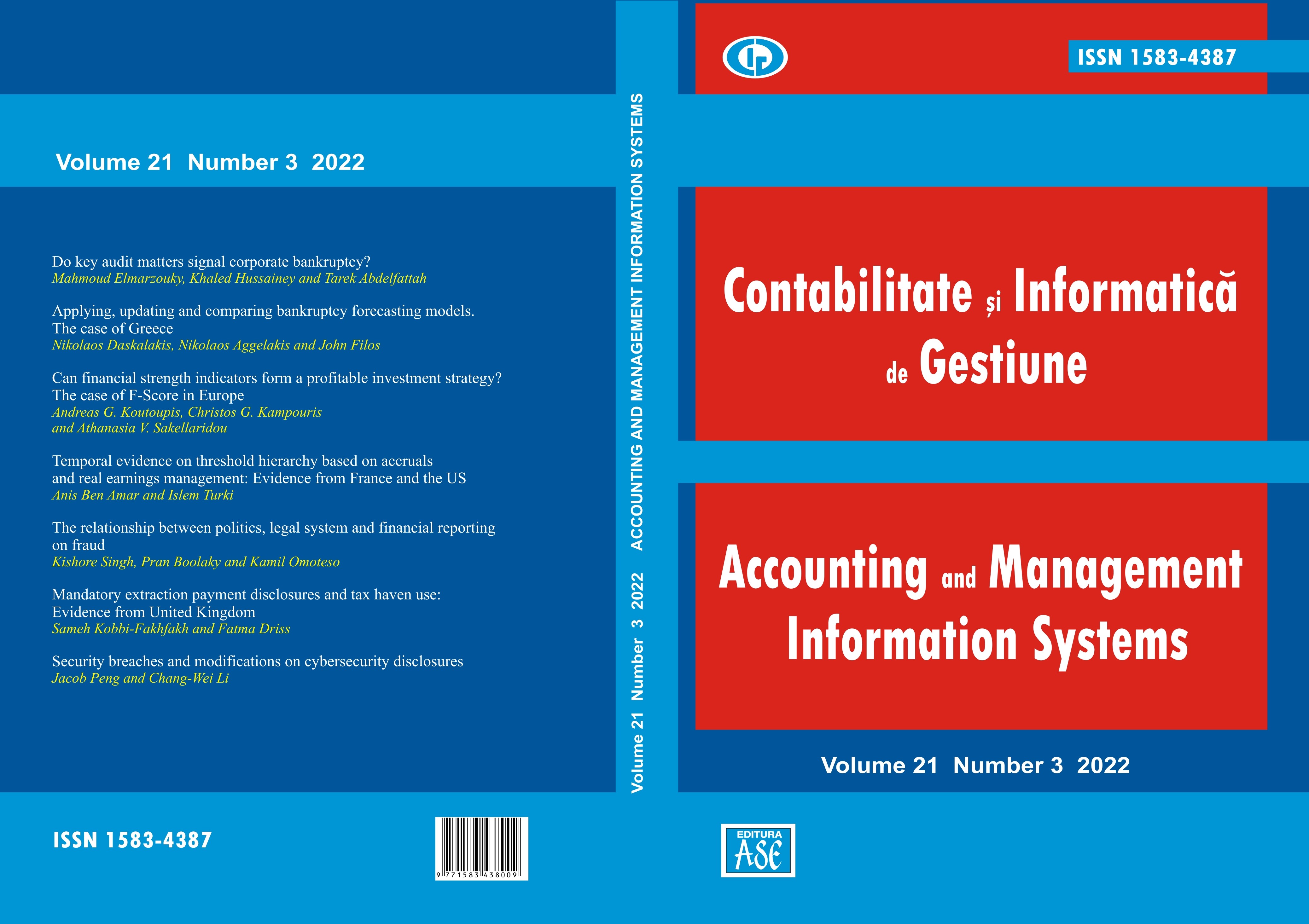Temporal evidence on threshold hierarchy based on accruals and real earnings management: Evidence from France and the US
Temporal evidence on threshold hierarchy based on accruals and real earnings management: Evidence from France and the US
Author(s): Anis Ben Amar, Islem TurkiSubject(s): Economy, Business Economy / Management, Financial Markets, Accounting - Business Administration, Business Ethics
Published by: EDITURA ASE
Keywords: Earnings management; Hierarchy of earnings thresholds; Discretionary accruals; Real earnings management
Summary/Abstract: Research Questions: Does the hierarchy of earnings thresholds differ between accounting systems? Does a temporal shift occur in the hierarchy of the earnings thresholds associated with earnings management?Motivation: A number of studies looked into the hierarchy of earnings thresholds based on the earnings distribution, capital market valuation, survey views, and discretionary accruals. Our study seeks to fill this gap by investigating the hierarchy of earnings thresholds based on real earnings management and by investigating if the hierarchy of earnings thresholds differs between accounting systems.Idea: This paper aims to examine the hierarchy of achieving certain earnings thresholds based on the magnitude of discretionary accruals and real earnings management under two different accounting models. Tools: Large samples of US and French firms for the period ranging from 2008 to 2018 are used. The relative extent of both discretionary accruals and real earnings management used to achieve three earnings thresholds is examined by regression analyses.Findings: Two hierarchies emerge from the US and French contexts. On the one hand, we find (1) avoiding earnings losses, (2) avoiding earnings decreases, and (3) avoiding negative earnings surprises in the US context. On the other hand, we find out (1) avoiding earnings losses, (2) avoiding negative earnings surprises, and (3) avoiding earnings decreases in the French context. An analysis of the real earnings management behavior of these firms indicates that they have used the significant real earnings management for the purpose of avoiding earnings decreases in both contexts. These hierarchies are reorganized over time.Contribution: Our paper contributes to the existing literature in several ways. First, the majorities of studies on earnings management examine and validate opportunistic incentives, whereas our results validate incentives with reference to the signaling theory. Second, our findings are of interest to investors, auditors, regulators and academics with respect to the financial statement analysis, accounting earnings quality, and financial reporting.Research limitations: This study is subject to measurement error which is a common limitation in the earnings management literature.
Journal: Journal of Accounting and Management Information Systems
- Issue Year: 21/2022
- Issue No: 3
- Page Range: 373-396
- Page Count: 24
- Language: English

